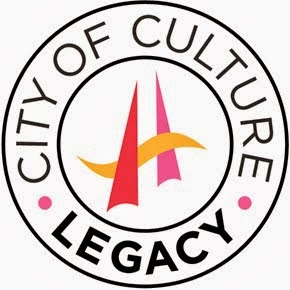Richard Linklater's magnum opus is a tale of loss, love and livelihood
There are two ways to look at Richard Linklater's Boyhood. You could see it as the real-time life story it promotes itself as, a unique, psychological and philosophical exploration of the ups and downs of readjustment when growing up and getting older. Alternatively, you could just shrug your shoulders and dismiss is as "another coming of age flick" with a gimmick, a showcase for pretentious, self-consciously artsy natter. It's a familiar trend in Linklater's love-hate work; you either buy his characters or you don't. And the likelihood is that in Boyhood, you will.
The mere concept for Boyhood is strong enough in itself. The idea of filming an autobiographical narrative through a child's eyes is not novel, but the method is: a twelve year shoot with the same cast. Central to the story is Mason, played by Ellar Coltrane, his sister Samantha, played by Lorelei (daughter of the filmmaker) Linklater, his mother Olivia, played by Patricia Arquette, and his natural father Mason Sr, played by Linklater regular Ethan Hawke. The parents are already divorced when the film begins; what follows is a simultaneous eye into parenthood and childhood, with the emphasis (perhaps unsurprisingly) on the males (more on this later). It's Good Spielberg minus Bad Spielberg: absent fathers, broken families, learning to be responsible (or not), coming of age, bittersweet coda and all, yet more mature and less patronising.
As children who live with their mother and regularly spend time with their father, Mason and Samantha are, understandably, driven almost entirely by self-oriented interests. Mason is the perpetual, pondering, perceptive dreamer, while Samantha, as written, is a variation on any of Chloë Moretz's child characters turned Juno; the snarky, mainstream "rebel", but thankfully more genuine than either.
Because of their points-of-view, they see only what they want to see in their parents; what brings out the worst in adults without contemplating what their elders must be going through. And by relying on their POV, we develop our own POV. This is alternately heartfelt and harmful film-making. Humane though the characters may be, Ethan Hawke's wise, light-hearted portrayal of the distant, idealistic father cannot help but come across as more appealing than Patricia Arquette's stressed out mother. It feels that Linklater has gone out of his way to make his "muse" look best at everyone else's expense, until you look closer and realise the appeal's more than a little superficial. The smug calculation of an American Beauty is absent. It's really not spoiling anything to say that there's no happy reunion for the mother and father.
More interesting is the issue of control. What happens to Mason when he doesn't get the car his father promised him? Or Samantha doesn't get things her way? Though the children aren't explicitly told this, that's just the way it is sometimes, and they have to deal with it. People, especially children, like to maintain control even if it's just an illusion; and for adults, the arrival of children can turn their lives upside down. Spare a thought for Olivia; do not write her off as a shrew who fails at two marriages (she does) and stops her kids from having a good time (she doesn't try to). She is as she is because having children at such a young age reshaped her life plans, denying her of the university experience so many of us take for granted. It's no surprise that when it's finally time for Mason to leave the nest, she suffers a breakdown; having reacclimatised herself to a life of motherhood she doesn't know how she will cope without it. And then there's Mason's High Fidelity-esque relationship with the tomboyish Sheena (Zoe Graham), which (and again, it's really not spoiling anything) doesn't end happily ever after. The bonding, the beauty, the break-up; we've all been there. And how raw and real it feels too, despite its limited screen time.
Accusations of misogyny levelled at Boyhood should be rubbished; it is always apparent that Olivia is genuinely trying to be a good mother while pursuing a career. And how telling is it that Mason Sr sidesteps his son's question about whether or not he has a job when they're on a camping trip together? There is a refreshing clarity here that you don't see in a lot of films about broken families. At worst, step-parents or parental figures can be seen to use their unexpectedly, slowly blossoming bond with children for their own benefit; to enhance their self-importance and help them attain their goals at the expense of paying attention to the children's lives and future. Consider Olivia's second husband, university professor Bill Welbrock (Marco Perella) and his descent into alcoholism once he realises that the children are growing up and it will no longer be so simple to order them around; clearly unable to cope with the responsibility, he runs away from it. Boyhood is about the pleasures and discomforts of pre-adulthood, and the reluctance to leave them behind: that it speaks a little to the child and adult inside every one of us solidifies Richard Linklater's strengths as a sensitive artist.
This review also appeared on the Pulp Interest website on August 7, 2014.















0 comments:
Post a Comment